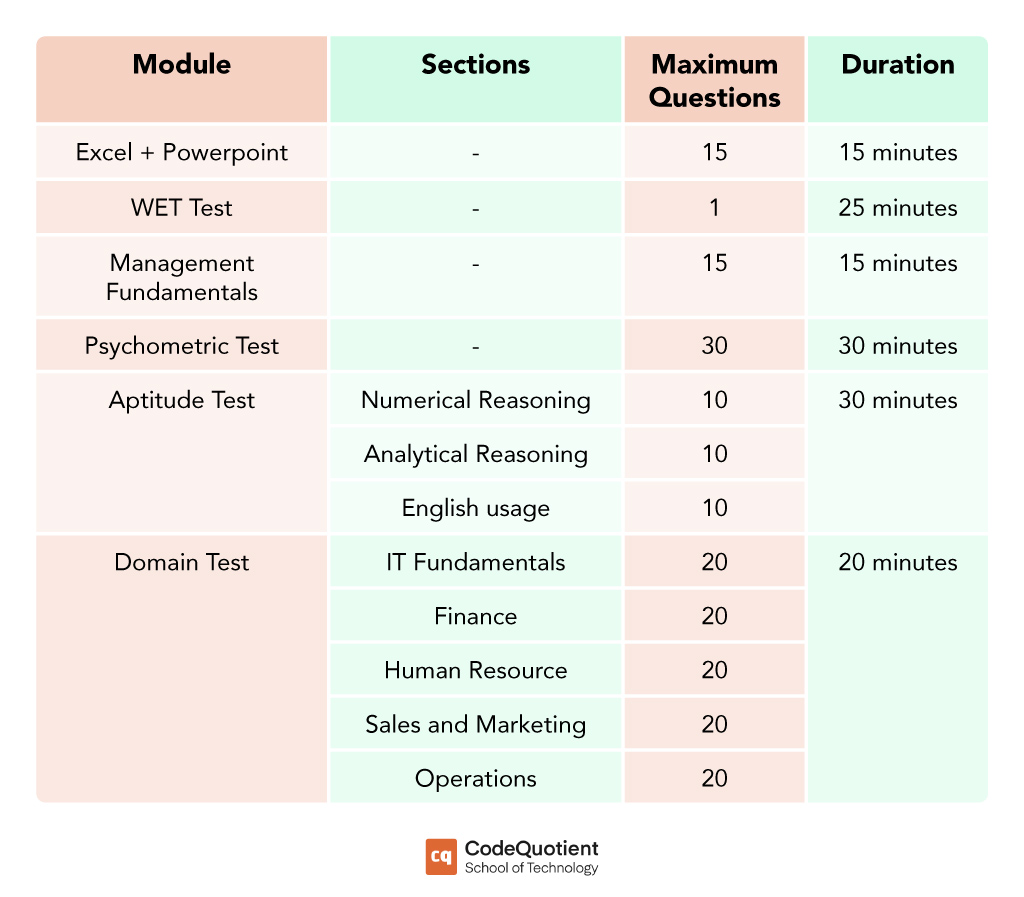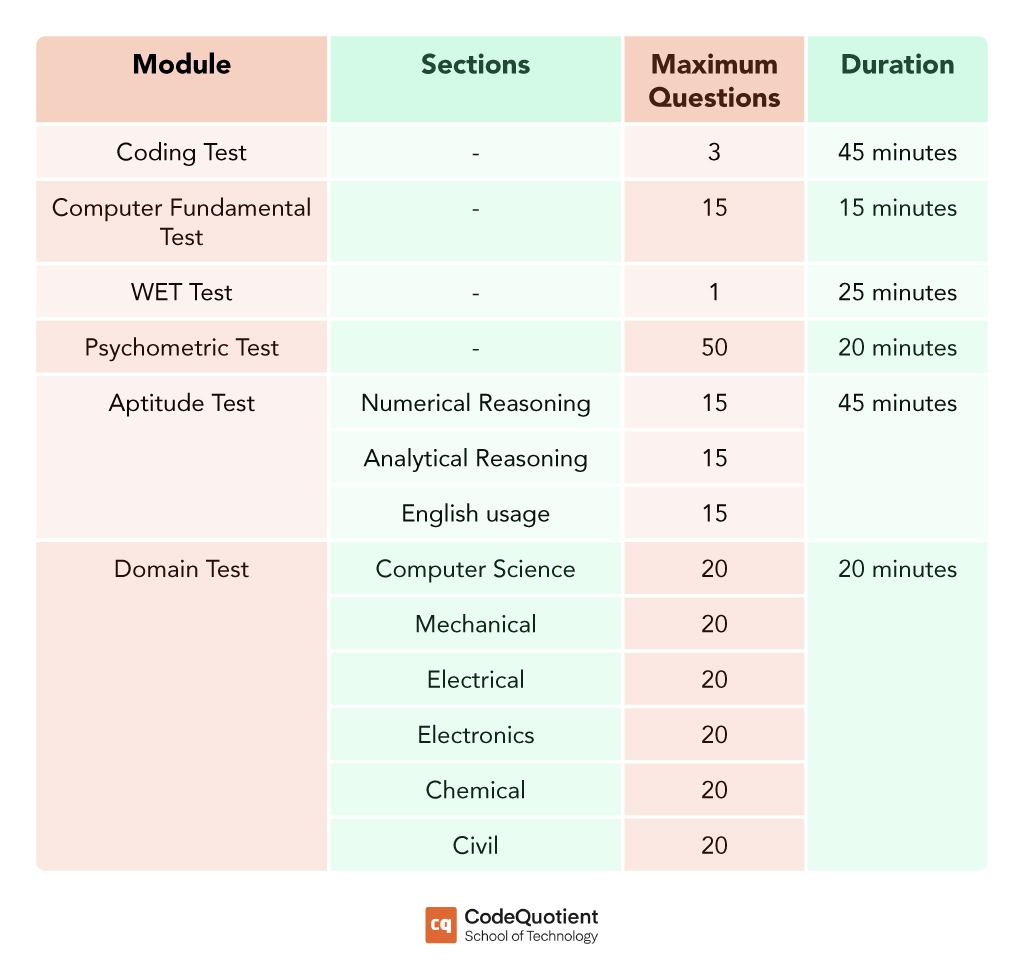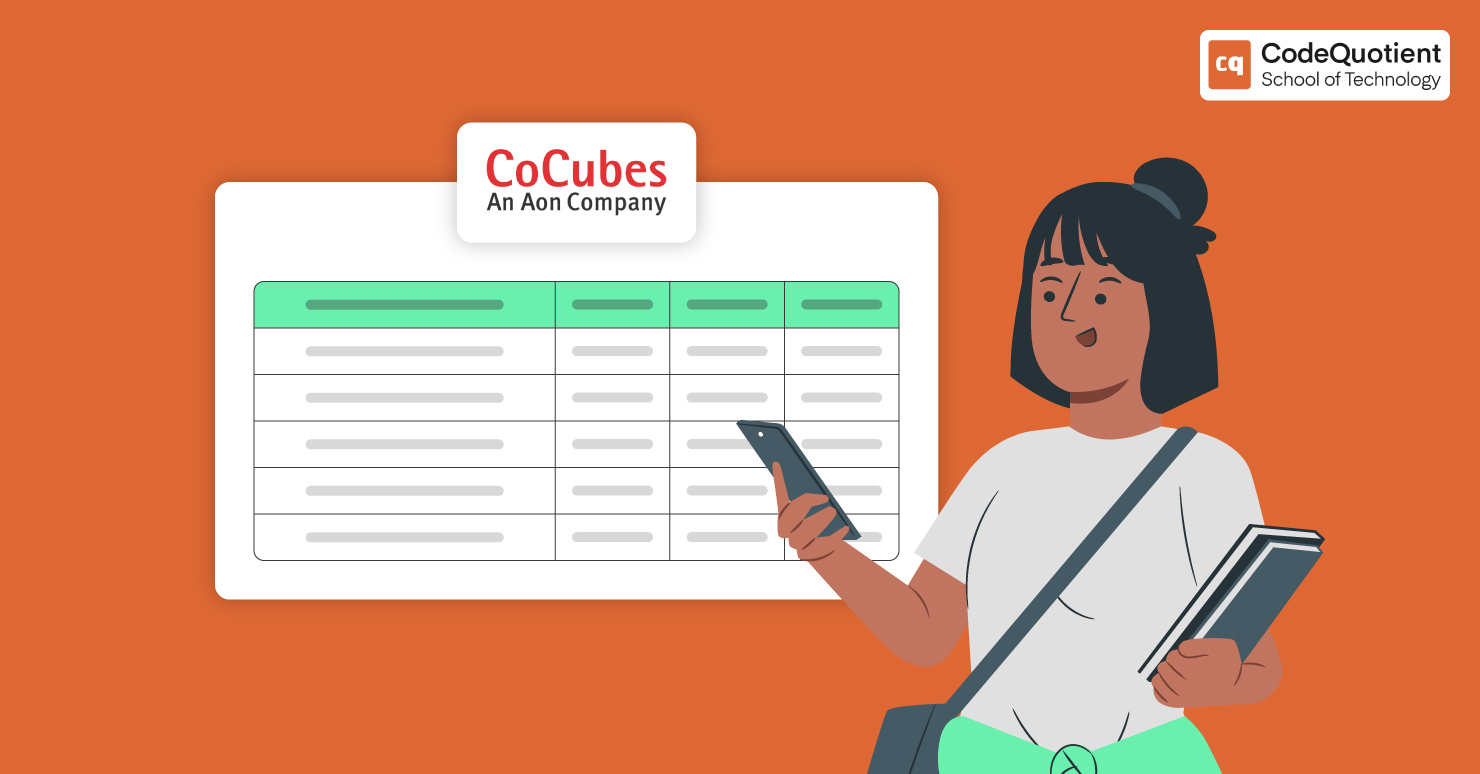CoCubes is a top hiring and evaluation platform that connects job seekers with organisations across industries. It is a popular choice for companies looking for top talent because it emphasises on personalised testing and data-driven insights. The exam assesses the participating students, making recruitment easier for many major firms.
However, grasping the CoCubes exam pattern is critical for students looking to excel and acquire their chosen positions. In this extensive guide, we delve into the complexities of the CoCubes test format, providing insights and tactics for navigating it successfully.
Understanding the CoCubes Exam Pattern
Three stages make up the CoCubes exam pattern: the assessment test, the technical interview, and the HR interview. To be hired, candidates must pass each round of qualification.
Following are the must-know details of the CoCubes exam pattern:
Stage One: The Assessment Test of CoCubes
- The questions on the assessment test will be objective.
- The candidates must finish their test in the time given to each section.
- The candidates must complete one section before moving on to the next.
CoCubes Test Pattern for the MBA Domain
The MBA domain test will include questions from the following subjects, as well as the time and total number of questions asked:

CoCubes Test Pattern for the Engineering Domain
The subjects covered in the CoCubes test of the engineering domain are listed in the table below:

Stage Two: Technical Interview
Stage two of the selection process for the CoCubes exam pattern involves this step. If candidates score high enough on the assessment test, the organizers will invite them to participate in this stage.
- Candidates can get questions based on their chosen field.
- The questions could cover specific knowledge of the company’s technical activities or understanding of the technical work the job requires.
- Candidates might need to solve real technical problems likely encountered in the role if hired.
Stage Three: HR Interview
The HR Interview is the third and last stage of the CoCubes exam pattern.
- This stage can also be viewed as a stage in which candidates can negotiate the compensation they expect to get once their position is confirmed.
- This stage identifies essential features of a candidate’s personality.
- Questions might range from your introduction to your qualifications, courses completed, industry-specific experience, wage expectations, strengths and weaknesses, friends and family, and so on.
- If the candidate’s name appears on the final list, he will be contacted to begin the joining process.
CoCubes Exam Pattern: Syllabus
The CoCubes exam syllabus includes several components meant to evaluate candidates across various skill domains. While the specifics may vary depending on the job function and corporate needs, candidates should anticipate to meet the following common elements:
Quantitative Aptitude
This section assesses candidates’ numerical and mathematical skills. It often includes questions about algebra, geometry, arithmetic, and data interpretation.
To excel in this area, candidates must exhibit their ability to solve problems and reason mathematically.
Logical Reasoning
Logical reasoning tests a candidate’s ability to analyse and evaluate sequences, patterns, and relationships. Questions in this section may include puzzles, coding, syllogisms, and logical deductions.
To effectively address these issues, you must take a logical approach and think methodically.
Verbal Ability
The verbal abilities part assesses candidates’ language proficiency, understanding, and vocabulary. It includes grammar, reading comprehension, vocabulary, and sentence repair questions.
Strong communication skills and a solid grasp of the English language are required for success in this segment.
Computer Fundamentals
This section examines applicants’ understanding of fundamental computer topics such as hardware, software, operating systems, networking, and data structures. Understanding these principles is critical to success in this part.
Tip to Prepare for CoCubes Exam
The CoCubes exam preparation procedure should be methodical and concentrated. Candidates should strive for excellence in each section of the exam.
The following suggestions will assist candidates in preparing for the exam:
Understand the CoCubes Exam Pattern
Familiarise yourself with the CoCubes exam pattern, including question categories, sections, and time limits. Understanding the structure will allow you to schedule your preparation more effectively.
Regular Practice
Use sample papers, past years’ question papers, and mock tests to assess your preparation and discover areas for improvement. Focus on increasing speed and accuracy in all categories.
Manage Time Efficiently
Allocate precise time periods for each section of the exam. Prioritise questions based on strengths and limitations, and avoid devoting too much time to any one question.
Revision
Revision is a vital component of your preparation approach. To ensure that you recall the material, review all of the topics frequently.
Seek Advice
If you encounter difficulties, seek help from mentors, teachers, or online resources. You can also join study groups or online forums to share ideas and learn from each other’s experiences.
Maximise Success by Navigating the CoCubes Exam Pattern for Lucrative Opportunities
The CoCubes exam allows applicants to demonstrate their talents to potential employers. By studying the test structure and implementing smart methods, candidates can increase their chances of success and obtain lucrative job prospects.
To succeed on the CoCubes exam and advance in your profession, you must continuously study, practice persistently, and take a planned approach.
CodeQuotient, a gateway for career development, offers a 3-year Bachelor of Computer Applications (BCA) + UG Program In Software Engineering. This course combines theoretical knowledge with hands-on experience so that students can graduate with industry-ready knowledge and a dual certification.
CodeQuotient’s Software Engineering Bootcamp provides an ideal opportunity to develop a rigorous preparatory practice. This three-month internship seeks to improve your abilities through project-based learning and will allow you to build an impressive portfolio for future job prospects.
For additional information, contact us today!




